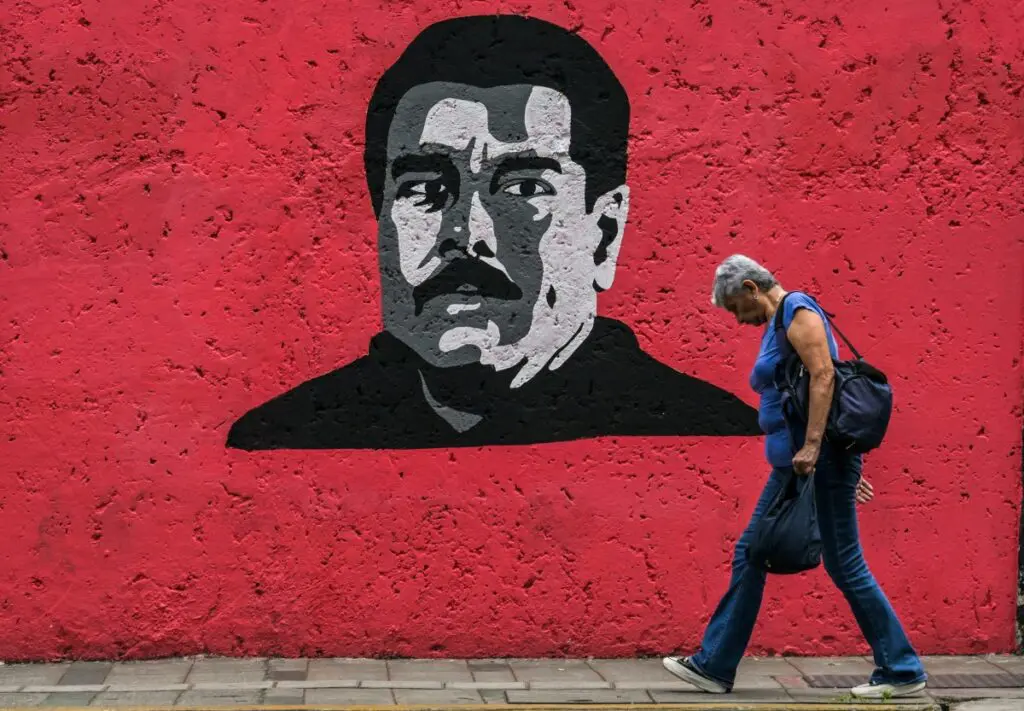June 24, 2024 | The European Conservative | By Alejandro Peña Esclusa
There is huge potential for electoral fraud, designed to keep the regime in power.

Venezuela’s upcoming presidential elections, to be held on July 28th, represent a golden opportunity to promote democracy and freedom in the Western Hemisphere.
The defeat of the Venezuelan regime would mean, first, the weakening of the dictatorships in Cuba and Nicaragua; second, the end of the powerful Cartel of the Suns, which floods both the United States and Europe with drugs; third, a severe blow to the interests of the Sao Paulo Forum in the region; fourth, the loss of the main ally of Russia, Iran, and Islamic terrorism in Latin America; and fifth, the end of the exodus of Venezuelans, which to date has reached eight million people.
Circumstances—some of them unexpected—mean that there is a real possibility that Nicolás Maduro will be forced to relinquish power. To avoid this, the regime is preparing a massive fraud, which is why last May 28th the Venezuelan National Electoral Council canceled the invitation it had already made to the European Union to send an observation mission.
In response, the EU must prepare itself for possible election fraud. Preparing any reaction will mean it is necessary to understand in detail the mechanisms used by the Venezuelan regime to manipulate the will of its people.
An integrated fraud would cover all aspects of an election, from the selection of the electoral authorities to the validation of the results. It is an evolving fraud, because it is perfected with the passage of time. It is advanced, because it uses state-of-the-art technological tools; it is undetectable for many, because it requires high training to discover it; and as if that were not enough, it is also exportable to other nations.
The heart of the system is the use of compromised electronic voting machines and the adulteration of the totalization system, to artificially modify the results before, during or after the election process. Even the fingerprint machines can be used to eliminate the secrecy of the vote (‘secret ballot’), and for the authorities to follow up by firing and/or removing subsidies to those who vote against the regime.
This fraudulent model—developed in Venezuela and exported to other nations of America, Asia, Africa and maybe also to Europe—has been revealed in several reports and books, among them my own, entitled The Electoral Frauds of the Sao Paulo Forum“—and also The Power of Mathematics, the Electronic Voting System of Venezuela That Spread Throughout the World, by the Venezuelan electoral expert Guillermo Salas.
In his book, Salas highlights the participation of Smartmatic in the fraud perpetrated by Hugo Chavez in the 2004 recall referendum. Smartmatic was founded by Venezuelan technicians, with the support of the Chavista regime; but later its president became Lord Malloch-Brown, a high official from George Soros’ Open Society (who has since stepped down). Smartmatic then bought Sequoia Voting Systems in the United States, which was later absorbed by Dominion Voting Systems.
As can be seen, this election will not only affect the future of Venezuela but will also affect the security and defense of the entire hemisphere, for better or worse. That is why the European Union must remain alert and vigilant in the face of Maduro’s plans to illegally perpetuate his power.
Alejandro Peña Esclusa is a writer, analyst, and political consultant. He is an expert on the Sao Paulo Forum, about which he has written four books. He was persecuted, imprisoned, and forced into exile by the Venezuelan regime.

